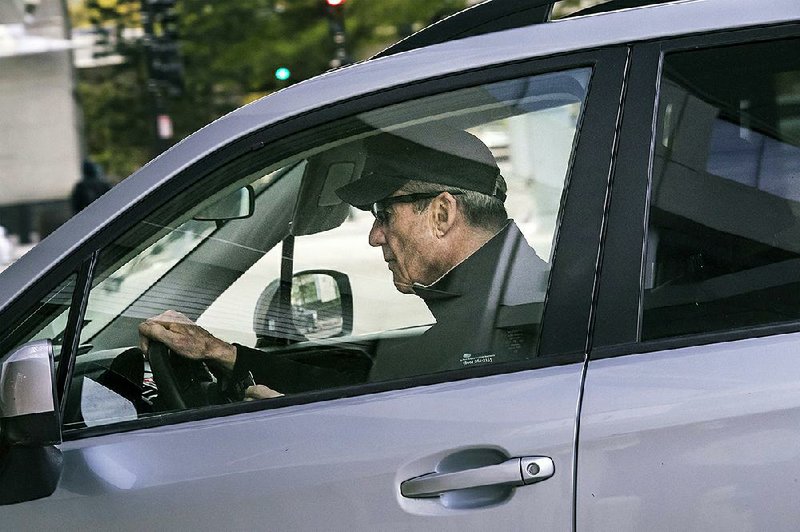WASHINGTON -- Democrats' demands for a full, unredacted version of special counsel Robert Mueller's report are likely to prompt a prolonged political and legal battle.
The chairman of the House Judiciary Committee, New York Rep. Jerrold Nadler, has said he is prepared to issue subpoenas "very quickly" for the full report on Russia and Donald Trump's presidential campaign if it is released with blacked-out sections. And that would set the legal fight in motion.
Attorney General William Barr has said he is redacting four types of information from the report, which the Justice Department says will be released Thursday. Congressional Democrats cite precedent from previous investigations in saying they want to see it all. But some Republicans defending Barr are also citing precedent, saying it is appropriate to keep at least some of the information from Congress and the public.
Barr said last week that he would not go to court to request that secret grand jury information be released. He said Democrats are "free to go to court" themselves, and Nadler has said he is ready to do so.
Grand jury information, including witness interviews, is normally off limits but can be obtained in court. Some records were eventually released in the Whitewater investigation into former President Bill Clinton and an investigation into President Richard Nixon before he resigned.
Both of those cases were under somewhat different circumstances, including that the House Judiciary Committee had initiated impeachment proceedings. Federal court rules state that a court may order disclosure "preliminary to or in connection with a judicial proceeding."
Nadler told reporters he's considering arguing that the grand-jury material would be relevant to any impeachment proceedings Congress might want to undertake.
Jack Sharman, a former counsel to Congress during the Whitewater investigation in the 1990s, is skeptical that will work.
"Usually when Congress goes to court, it loses," he said. "Either because it somehow lacks standing, the legal right to be there in the first place. Or because the court punts, saying it's a political question."
But Nelson Cunningham, a top lawyer in the Clinton White House, thinks Congress has a shot, since there's legal precedent for the Justice Department to hand this kind of information over. In the 1970s, Congress got the special counsel report for the Watergate investigation after asking a court for it.
The 1974 decision allowed them to see the Watergate report, but they couldn't share it with the public.
Congress frequently receives classified documents and briefings, and Democrats say there is no reason the Mueller report should be any different.
Many Republicans agree, including the top Republican on the intelligence committee, California Rep. Devin Nunes, who wrote a rare joint letter in March with House Intelligence Committee Chairman Adam Schiff asking for "all materials, regardless of form or classification." In the letter, Schiff and Nunes also asked for a private briefing from Mueller and his team.
Democrat Schiff has argued that some of that information should be released to the public, as well, citing Mueller indictments that have already revealed details about the Russian effort to influence the 2016 election.
Barr said he will redact information related to investigations connected to the Mueller probe that are still underway. Those include cases handed off or referred to federal prosecutors in Washington, New York and Virginia.
Democrats have noted that the Justice Department has released such information before, including some related to Mueller's own investigation while it was in progress. Republicans who were in the House majority last year obtained documents related to the beginnings of the Russia investigation, arguing that officials were biased against then-candidate Trump.
Republicans argued at the time that it was necessary to obtain that information to maintain the integrity of the investigation.
The Justice Department regularly redacts information about people who were interviewed or scrutinized in investigations but not charged. Barr has said he will black out information from the report "that would unduly infringe on the personal privacy and reputational interests of peripheral third parties."
Meanwhile, Trump's lawyers say are putting the finishing touches on a rebuttal to the forthcoming report.
Rudy Giuliani, one of the president's attorneys, said Tuesday that their document will be dozens of pages long.
Giuliani said it will be published in the hours after the release of Mueller's report.
Information for this article was contributed by Mary Clare Jalonick and staff members of The Associated Press; and by Amber Phillips of The Washington Post.
A Section on 04/17/2019
